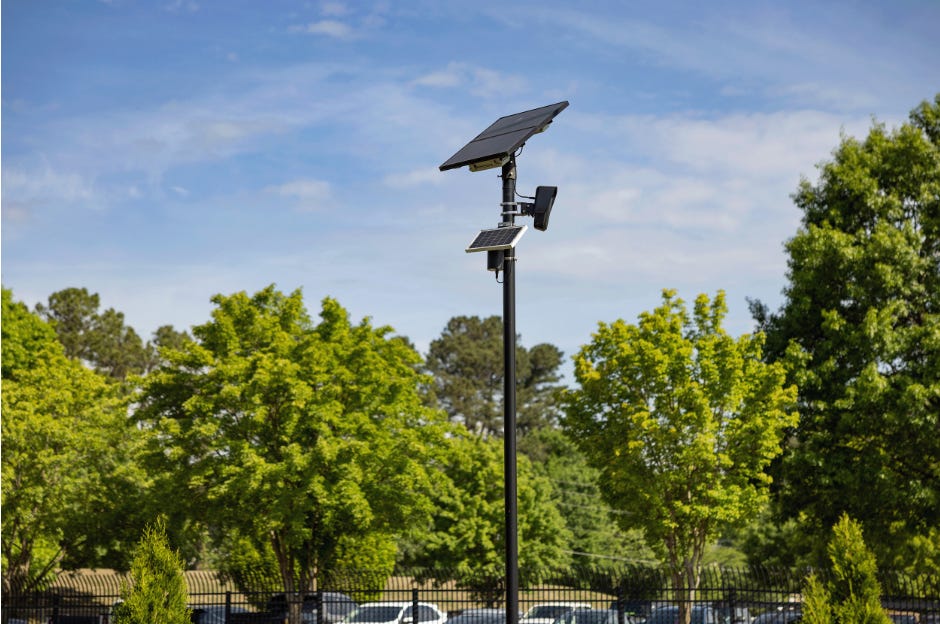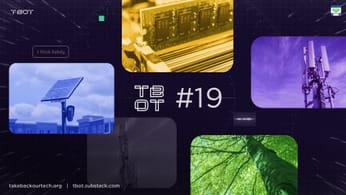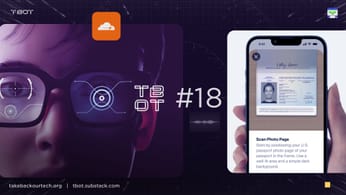
Palantir for Cars (Flock Cameras) Roll Out in US Hardware Stores
Have you driven to the hardware store recently? If you have, your car may be in a searchable database thanks to Flock cameras.
Have you driven to the hardware store recently? If you have, your car may be in a searchable database thanks to Flock cameras. Read on to get a list of 171 hardware stores that run these cameras in their parking lots.

What’s Flock and Why Does it Matter?
A $7.5B surveillance technology company builds solutions for police departments. Its showcase product is the Flock camera, which features:
- Automatic License Plate Reading (ALPRs) - Captures the license plate of every car that drives past a camera.
- Real Time Video Access - Police can tap into video streams on demand for nearby events.
- Gun Shot Detection: The cameras can also detect gunshots and send out alerts.
Learn more at: https://www.stopflock.com/
These features feed data into “Nova”, Flock’s analytics platform. Think Palantir but for cars. This system combines all data and lets you search it with plain language.
For example, searching Nova for “Brown SUV with damage on the passenger door” will pull up scenes of cars that match that description.
Although there’s no indication that this Flock camera system is integrated with Palantir in any way, it’s likely that police departments around the country use both software services.
How did it end up at hardware stores?
Why would companies pay money to have surveillance in their store parking lots?
As crime increases, companies are turning to solutions like Flock cameras to support loss prevention and to identify shoplifters before they enter the store. They desire closer integration with police departments.
It’s very likely that big box stores around the country will start using these or a similar type of camera. And because these would be private agreements between the two companies, you would likely never even hear about it.

The Rise of Unified Surveillance
This is the next generation of surveillance, which we have dubbed “Unified Surveillance.” Public places, local government buildings, and private stores are becoming part of a larger surveillance network where information is aggregated—all into one platform.
Law enforcement agencies can create data sharing contracts with these places and use software like Palantir’s Gotham or Flock’s Nova to create a rich information landscape.
People, properties, cars, and relationships can be easily searched and identified with this next generation of Unified Surveillance.
This Substack is reader-supported. To receive new posts and support my work, consider becoming a free or paid subscriber.
Which Stores Are Involved?
The Electronic Frontier Foundation (EFF) filed a Freedom of Information Act (FoIA) request and handed the data over to 404.media who first reported on this.
They produced a PDF showing police departments and locations that use Flock cameras, including 171 Home Depot and Lowe’s locations across the United States.
I ran the document through OCR, uploaded it to the Internet Archive, and made it searchable (the first page is a bit garbled, but the rest is readable).
https://archive.org/details/flock-cameras-hardware-stores
You can search through this document to see if your local store is involved.
As the surveillance network grows, we’ll need to be cautious about which places we visit. You may unknowingly be added to a searchable police database by simply running errands. This is not just theory—these systems are online and active right now.
Solutions
We can raise awareness and avoid these surveillance systems. It’s important to vote with our dollar and to shop local at places like mom-and-pop shops, and local chains and hardware stores. These stores are more likely to be invested in their communities and would be unlikely to violate their customers’ privacy.
This is a segment from #TBOT Show Episode 10. Watch the full episode here!

A major source of phone surveillance comes from big tech’s centralized services that you can’t opt out of.
With Above Phone, there are no centralized services.
That means no ads, no centralized logging, and no privacy-invading features!
Take Back Our Tech Newsletter
Join the newsletter to receive the latest updates in your inbox.





